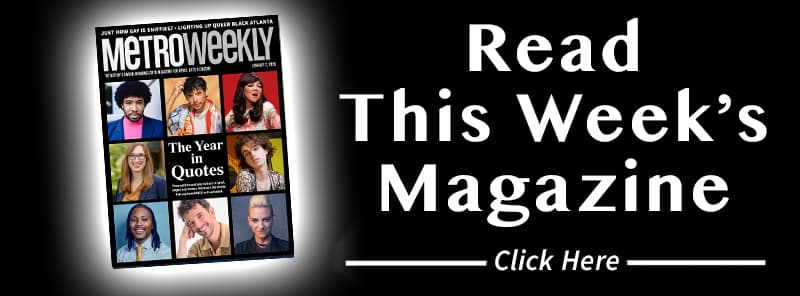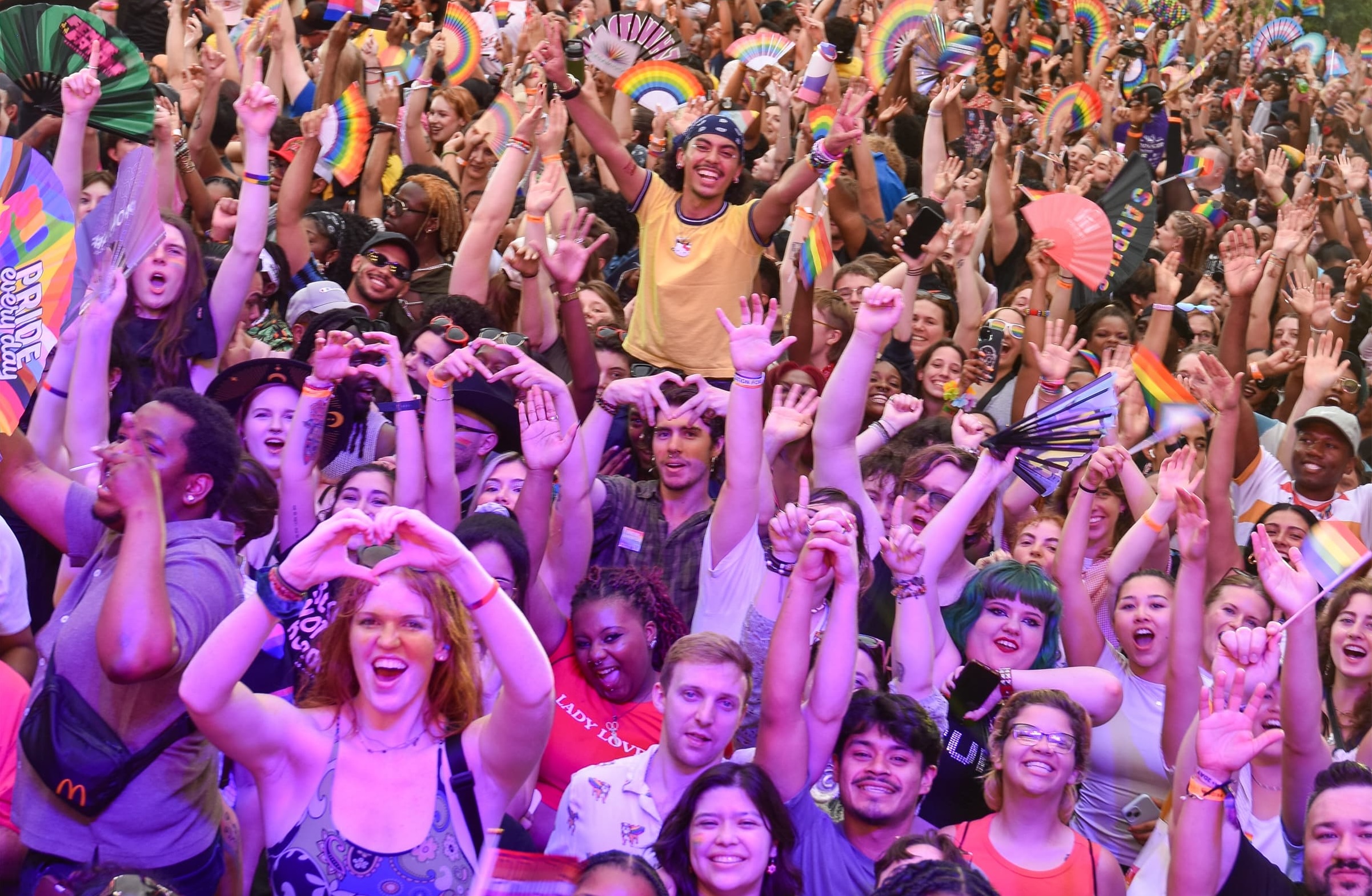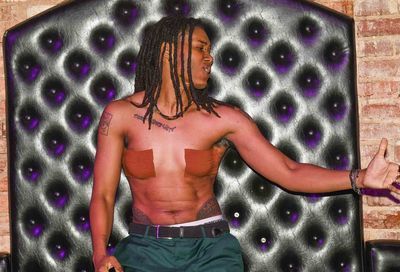Interview: SMYAL’s Sultan Shakir
SMYAL's newest executive director took the reins of the organization in August. Now he hopes to build and expand upon its mission to build youth leaders.

Photo by Todd Franson
MW: When you started working at HRC as a field director, what was that like? How did you see your skills change over the years, from your initial community organizing experiences?
SHAKIR: That was a really amazing experience on a number of levels. One, I got to work on a local level on some issues that really matter to me, I got to work on issues of people’s basic rights. To be employed without discrimination, their right to access housing without discrimination. I also got to see why these issues are sometimes more complicated than we assume they are.
So, for instance, when I was looking to defend a local nondiscrimination ordinance that covered sexual orientation and gender identity, I was talking to this woman, and I did an informal focus group with her, and asked her how she was planning on voting on the measure that was coming up. And she said, “I’m certainly voting for that,” which was against what we wanted. She was voting to repeal [the ordinance]. And I asked her why, and she said, “Oh, I have a little niece, and I would never want a guy to go into a women’s restroom and rape my little niece.” And those are the arguments that the opposition was using, and it was surprising how innocently, but easily, people eat up a lot of arguments made by those who want to keep LGBT people, and particularly trans people, from having the same basic access to rights and services as everybody else.
So it made me much more sensitive to how I interact with people who, originally, aren’t supportive of LGBT equality, and thinking about where they’re coming from in the conversation they’re having. But really understanding that she genuinely believed that, that she was voting that way out of a genuine concern for her niece.
MW: Do a large number of the youth you serve come from a religious background that is not supportive of their identity? How would you gauge that?
SHAKIR: I would say most of the youth that SMYAL serves come from low socioeconomic backgrounds. Most are youth of color. And I would say a fair percentage come from households that have some religious background.
MW: If they’re not getting that support at home, or in the church, how do you reach out to them and get them involved in SMYAL?
SHAKIR: So there are a number of ways. One, it’s about reaching out to youth, but it’s also changing institutions. We reach out to youth in a number of different ways. Obviously, as youth are very big on social media, we have a very active social media presence. Another way is in the schools. And a third is through peer-to-peer outreach. A lot of our work is about building youth up to work with other youth to meet the challenges you face. The other part, which is changing institutions, looks at how different policies, like school policies, disproportionately affect LGBTQ youth. So, for instance, there are a number of policies that look like they’re supporting LGBTQ youth, like “zero-tolerance” policies around bullying, that end up having a greater impact on LGBTQ youth. So, for example, a youth comes to school, gets bullied for what they’re wearing, gets into a fight, and both youth get sent home. Well, it seems like that’s an anti-bullying policy that protects the LGBTQ youth that actually sends them out of school and makes that person miss out on the education they were supposed to receive.
MW: How do you go about changing those institutions, in terms of such policies?
SHAKIR: One of the ways is through our Gay-Straight Alliance Network Initiative, which works with youth. We have a leadership summit every year, where we bring together youth to talk about these negative policies that are disproportionately impacting LGBTQ youth, and talk about what the solutions are to that. And at the same time, we talk with youth about how to build effective campaigns. So, for instance, what the difference is between a goal and a tactic. So the goal might be to change a policy, and the tactic might be to have a rally. But you just don’t have a rally to have a rally, you have it as a tactic to accomplish a goal. We want to make sure they know what it takes to run a campaign, and then the youth identify the campaigns they want to run. We’re currently working with youth to identify what culture shift or policy shift they want to create in their own schools. The youth lead that initiative based upon their needs. So some youth are looking at policy changes around dress codes, mandatory dress codes, some youth are doing campaigns around language, explaining what transgender means so people are more sensitive to the transgender students in their schools. Every youth in the program gets to identify what it is that they feel needs to be changed in order to make their school safer, and we work with them to implement that plan.
MW: On peer-to-peer counseling, do you have anything in place where older SMYAL youth mentor younger ones?
SHAKIR: Some of that happens in the GSA network. Some of those who come through the GSA network will come back as trainers the following year. When it comes to peer counseling, it is much more about understanding that youth listen to their peers. So if you’re engaging a youth around safe sex practices and prevention methods, or same-sex dating violence, those messages are much better received coming from a peer rather than a teacher. And also identifying the fact that there are usually few opportunities for youth to get messaging on LGBT-specific sexual health and sexual education.
MW: Do you find that the youth involved with the programs are proud to be associated with SMYAL, or do they try to hide it?
SHAKIR: Coming out, or being open, no matter who you are, as an LGBT person, is a personal choice. And so we see youth who fall across the spectrum. Some are very vocal about the fact they come to SMYAL and are a part of SMYAL programs; some youth, not so much, because they know if they talk about it, they will be bullied. Or they don’t have support from their parents, and they’re not interested in having another conversation with their parents about the fact that they’re gay, and bringing up SMYAL only makes their home situation worse. What I will say is that most of the youth I have met are very proud to be at SMYAL, whether that’s something they talk about with their peers and family, or not. After they age out at 21, some will come back as volunteers, and others will come back as trainers.
MW: What are you doing to try and grow your public profile, as well as your donor base?
SHAKIR: First, SMYAL could definitely use more resources from the community to expand the programmatic work of the organization. Second, the programs are in a very solid place, and I think are ripe for expansion. We could also use much more support from corporate foundations and from employee resource groups that work with nonprofits in the area. SMYAL, I think, is the perfect place for an employee resource group to see their resources have an effect, right here at home. I think the third thing is working with local and national agencies to access funds. We receive some funds from the District, and so, looking at what other opportunities there are to bring in agency money or money from local jurisdictions in Maryland and Virginia. I think the fourth thing is building more foundational relationships. We have a very strong relationship with the Meyer Foundation, the Cafritz Foundation, and are looking at what other foundations are interested in supporting underserved populations, whether they’re LGBT-specific or not, or that are interested in focusing on general leadership development, whether LGBT-specific or not, and working to have those foundations understand the unique needs of LGBTQ youth in the coming years.
We already receive some corporate funding, but I think there’s a potential, particularly with a strong and vibrant LGBT professional community here in the District, to identify additional support for some of the programs that are happening here at SMYAL.
MW: Tell me about some upcoming events SMYAL has planned.
SHAKIR: We’ll largely be focusing on our school-based work, as we wrap up this semester and where we are with some of the campaigns the youth are working on. In between the semesters, we support the youth in starting off the new year in a very strong place, to continue their campaigns in schools, before summer break happens. Obviously, in the spring and summer, we have Youth Pride. We do a lot of social programming there, a lot of sexual health education around Youth Pride, so that’s usually a big opportunity for us to work with young people. Over the summer, it’s really preparing for the beginning of the new school year.
MW: During the semesters, both fall and spring, is there a “drop-dead” date by which the campaigns have to be finished, or can they overlap into multiple years?
SHAKIR: There’s not a drop-dead date because most of these campaigns are working on issues that are not going to be wrapped up in one year. We’re definitely looking for a measurable outcome in any of the campaigns we work with, but I don’t think any of the youth, at the end of the year, are going to walk away and say, “My school is as LGBT-inclusive as I want it to be. I’m done with campaigning for equality in my school.” So that’s why we work to bring continuity to the work from year to year,we so we can build upon the successes that are happening in schools, and also keep an eye on any challenges that youth are facing.
SMYAL is located at 410 7th St. SE. For more information on its services and programs, call 202-547-5940 or visit smyal.org.
Support Metro Weekly’s Journalism
These are challenging times for news organizations. And yet it’s crucial we stay active and provide vital resources and information to both our local readers and the world. So won’t you please take a moment and consider supporting Metro Weekly with a membership? For as little as $5 a month, you can help ensure Metro Weekly magazine and MetroWeekly.com remain free, viable resources as we provide the best, most diverse, culturally-resonant LGBTQ coverage in both the D.C. region and around the world. Memberships come with exclusive perks and discounts, your own personal digital delivery of each week’s magazine (and an archive), access to our Member's Lounge when it launches this fall, and exclusive members-only items like Metro Weekly Membership Mugs and Tote Bags! Check out all our membership levels here and please join us today!


























You must be logged in to post a comment.